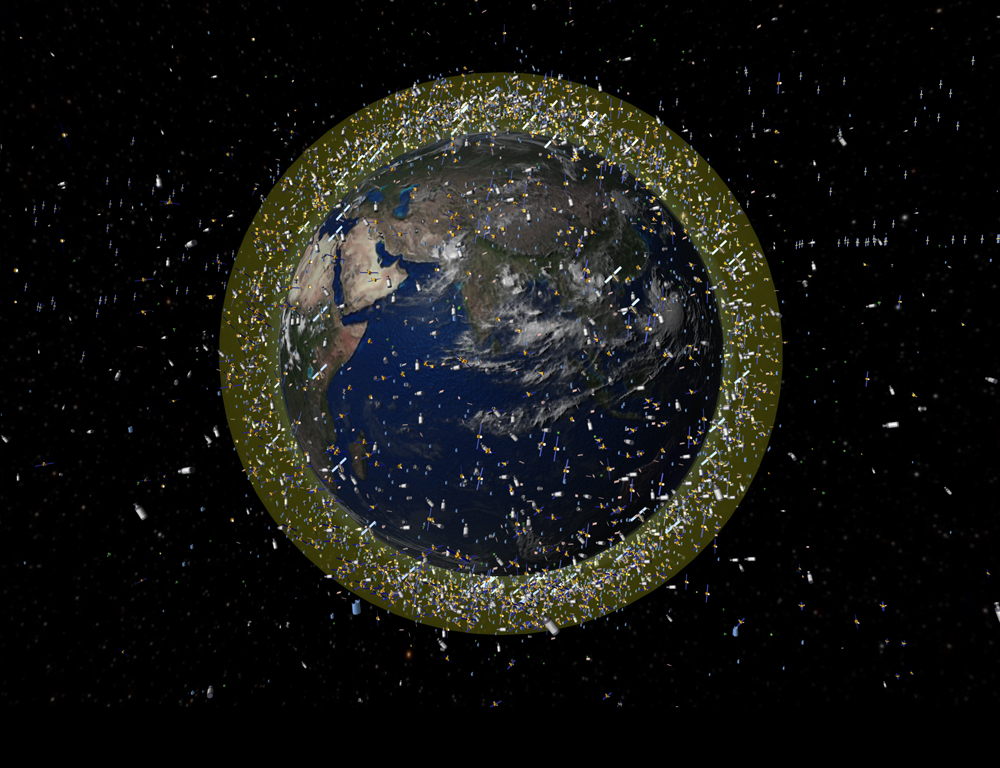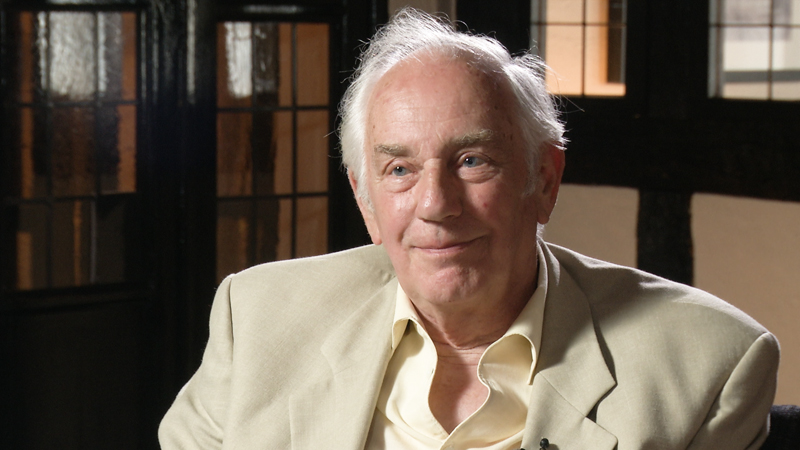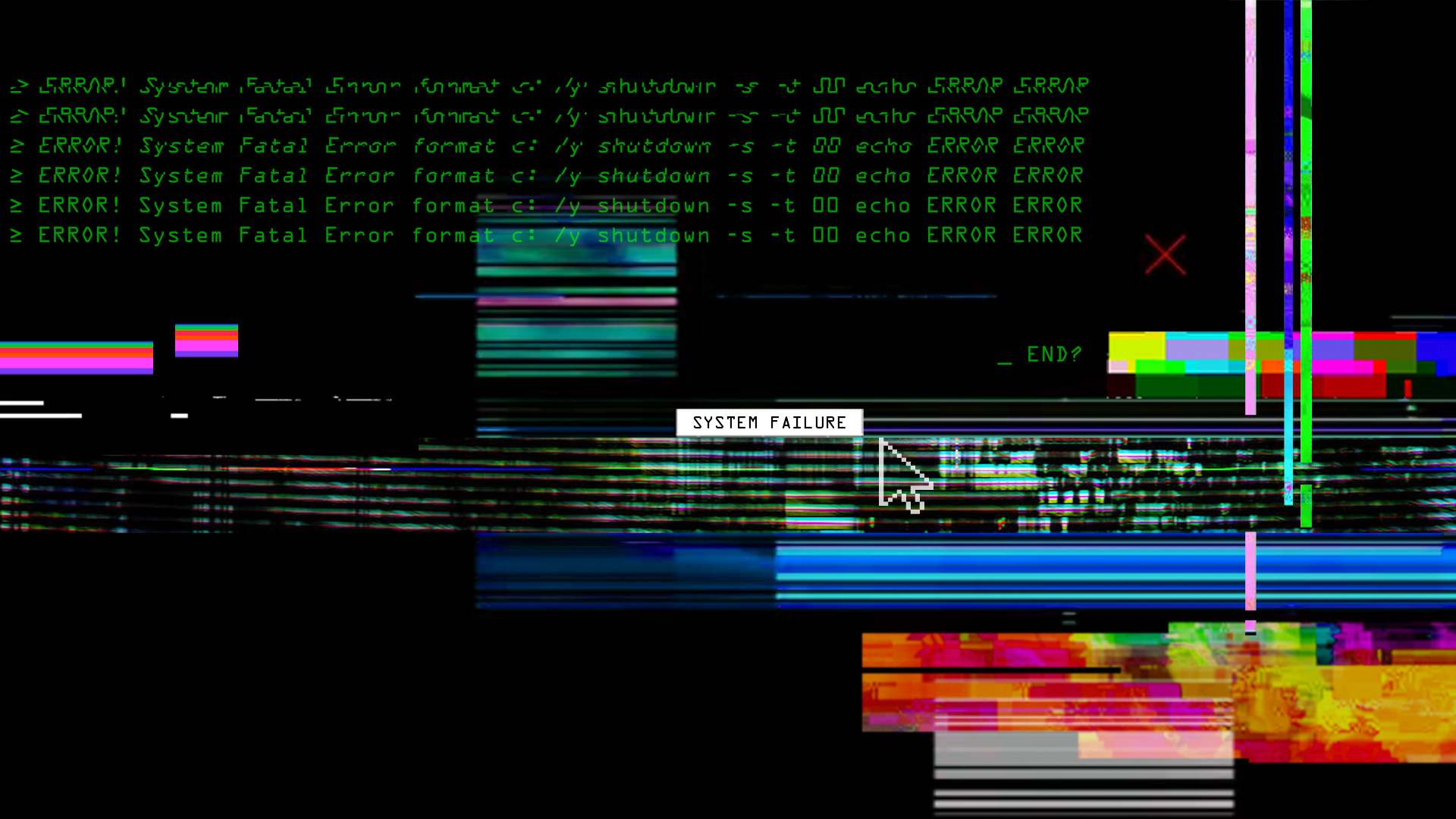Is There Life After Tech?
Technology will almost certainly fail in catastrophic ways in the foreseeable future, warns engineering physics professor Peter Townsend. How, and what can we do about it?
We live in a world that is much more dependent on technology than most of us realize. An occasional power outage may help us grasp the inconvenience of doing without some of our favorite (or even essential) gadgets for a while, but the reality is so much more dire. Vision publisher David Hulme spoke with Peter Townsend, author of The Dark Side of Technology (2016) and emeritus professor at the University of Sussex, about the scope of our reliance on technology and the implications of its failure.
DH Why did you write The Dark Side of Technology?
PT I have a message to get across, which is that technology is fantastic, it’s marvelous; without it the world would be a different place. But we are so excited about the technology that we rarely sit back and think, “Are there any side problems that we should address?” And I realize there are many across the whole range of technologies, from medicine to chemistry to physics to electronics—some of them so serious that they could actually destroy us.
DH Which of the many existential threats we face is the most serious?
PT There’s a range of threats. Technology itself can be damaged by natural events that are bound to happen—events that are totally outside our control, such as a meteor impact. Other threats are insidious but getting worse: all types of cyber crime and the potential for cyber warfare. They are so easy to implement and could wipe out entire nations.
DH In the book you mentioned sunspot activity as an example of a natural event and the damage it can cause modern civilization.
PT Yes, back in 1859 there was a big sunspot eruption known as the Carrington Event, which affected telegraph communications in the US and many other places. The electrical activity that it generated caused fires and shocked telegraph operators.
But the telegraph was a very low-level type of electronics. If we had an equivalent sunspot event today, it could potentially take out all the electrical grid systems, because the antennae that pick up the signals are the electrical cables of the grid. Today we have 4,000-mile-long links, which would generate enormous signals, and even if only the power units were destroyed, we’d be out of power for a very long time. Studies say that if the sunspot damage extended only as far south as New York, it would be between 30 days and three years before the power was fully restored. It doesn’t sound that desperate, but in fact if you take out all of that electrical power in the winter, there’d be no heat, no warm food, no water. On a lesser but still catastrophic level, you’d have disrupted communication (or no communication) between aircraft and ground control, affecting between 50,000 and 100,000 flights a day.
This is almost impossible to overcome. And we can expect something the size of the 1859 event about every hundred years or so—so we’re already overdue.
“We can expect something the size of the 1859 event about every hundred years or so—so we’re already overdue.”
DH Another vulnerability you’ve written about is our dependence on satellites.
PT Yes. There are close to 1,500 working satellites at the moment. Another 8,000 are planned. But a few satellites disintegrate each year. NASA is tracking more than 500,000 fragments, many of them from these breakups, and occasionally they have to move the space station so it doesn’t get hit. I’ve worked out that if you have a fragment the size of a cell phone traveling at orbital speed, the kinetic energy on impact is roughly 500 times greater than that of a modern tank shell. This causes far more fragments and could effectively lead to a runaway destruction of satellites up there. If you take out satellites, it’s a really big problem in terms of communication, banking, everything. And it is likely to happen over the next 20 or 30 years unless we find some way of removing fragments from that zone of space. We know the problem, but we have no idea how to address it. We don’t know how to clean it up.
DH You mention the human capacity to overcome potential problems by foresight. Has something happened to our ability to foresee in today’s world?
PT I don’t think it’s any different from the past. Some people sit down and think and look ahead, but they’re a real minority. If you’ve got really exciting rapid developments like electronics, computer links, cell phones, etc., people just don’t have time to look far enough forward. If some do look forward and foresee problems, they’re often dismissed as being pessimistic. And that, I think, is a deep, deep problem.
DH An important aspect of modern technological development is the parallel loss of data. You say, “The faster we make technological advances, the shorter the survival time of records and information.” If we’re talking about personal photographs, that’s one thing, but if we’re talking about all the records of a particular sector of society, that’s very different.
PT Yes, that’s right. If you’re involved with buildings and you have a land registry, and all the documentation is moved onto a computer system that either collapses or some covert software destroys it, you’ve got no records of ownership and you can’t get them back again. If you’re a historian and you want to see who had contact with whom—if it’s e-mail correspondence, future historians will have a dreadful problem because they probably won’t be able to find any of it. Even if they find it, it may be in a format they can’t read.

Seventy percent of all cataloged objects are in low-Earth orbit (LEO), which extends to 2,000 kilometers or 1,200 miles above Earth’s surface. Spacecraft must orbit at such a low altitude to observe Earth, but as the quantity of debris increases, so does the chance of collisions. Note: The debris objects in this image are an artist’s impression based on actual density data; however, their size has been exaggerated to make them visible at the scale shown.
Image: ©European Space Agency
DH In analyzing the downsides of various technologies, the problem seems to be that we’re concentrating on short-term gains and avoiding long-term dangers. How do you see that problem being resolved?
PT I don’t. It’s human nature. If you’re marketing mobile phones, deliberately make the old ones obsolete in some way so that people don’t want them. The life expectancy of mobile phones, before people buy a new one, is maybe 18 months. That’s a thousand dollars in 18 months. It’s marketed so that you throw away the old one. You’re pressuring people into moving to new technology. Okay, that’s an extreme case, but it really happens across the whole system.
DH The existential threat of global warming is much debated. As a physicist, what’s your view?
PT Let me start by saying that heat cycles have varied between ice ages and hot temperatures, and it’s perfectly reasonable that we may be heading back into a warm period. There’s nothing contentious about that. Do I personally believe in global warming from things that are within my own experience? Because if I don’t believe that, I’m definitely not going to believe what somebody writes about it.
Let me give you a couple of examples. I have a geologist friend who works in Greenland. When he started his research, he used to have to cross an ice field to get to the cliff face he was studying. Twenty years later, he now walks across a beach. The ice is gone. Take as another example the Austrian ski resorts. Since the year 2000, the ski season is 35 days shorter because there’s no snow. Now they’re frantically making artificial snow, but the reality is, it’s got warmer. My friends who are gardeners say there’s no question; spring in the UK is coming a month earlier than previously. UK temperature records show that the top 10 hottest summers have been in the last 20 years.
So all that evidence is confirming to me that, at least in the UK, it’s getting warmer. In the US, you’ve got a very big country, with immensely different ranges of temperature naturally. Eighty percent live in cities, with air conditioning and heating. You are not going to be sensitive to small changes, and at the moment it is a small change. Roughly 3 percent of any excess energy generated from any source goes into the air. The rest goes into the oceans and into the earth. So we are only sensitive to this very tiny bit.
In my view, then, there is global warming. The difficulty is knowing how much of it is coming from nature and how much of it is coming from us. There’s no question that we are contributing, because the production of CO2 from our activities is enormous. If we’ve got some influence on it, then we should try and do something, because otherwise it’s going to run away from us.
“In my view, then, there is global warming. The difficulty is knowing how much of it is coming from nature and how much of it is coming from us. There’s no question that we are contributing. . . .”
DH You say you’re optimistic by nature and convinced by instinct, not evidence, that humanity will survive. But you also mention the characteristic human features of aggression, power-seeking and personal gain, and you conclude that part of humanity is unlikely to change. Those two things sound like a contradiction.
PT With the aggression, the desire for power, the desire for land—if you’re religious, you’re going to say you’ve got the seven deadly sins. But those are the very things which have actually moved us from the Stone Age into technology and society as we know it today. Because we want more, we put the effort in to do it. Much of technology is developed because of warfare. One half of us is driving, because we are humans and we want more, and the other half is thinking more rationally and saying, “Is this good?” We’ve always got this conflict. We’ve survived this far; that’s why I’m optimistic that we might survive further.
DH You’ve said that the existential threats we face will come to a head within a decade or so. We’re talking about this being the last century in respect of a lot of these threats. Some writers frame it in terms of 2050 or the end of this century, but your time scale is a little shorter. Why?
PT I’m saying that civilization as we know it at the moment could be destroyed, collapse or run right down. I think it’s quite feasible that people would then continue, but not with the civilization we have. Take 1918 in Europe: there had been a war with 20 million people killed. Immediately afterward, the Spanish Flu is estimated to have killed between 40 and 50 million. As a percentage of Europe it was enormous. The Black Death of the 14th century killed about a third of Europeans. There was total collapse in both cases for a long time, but it wasn’t a situation where there were no humans left, and recovery took place. So if we have some people who survive, those people will effectively inherit what is left of the earth and they will redevelop. Will they learn from the past? Who knows?
DH How can political and industrial decision-making about technology be encouraged to have the long term in mind?
PT My guess is only when you have enough education and understanding on the part of politicians, industrialists and businessmen that it’s not ideal just to look for short-term profit. Almost inevitably politicians are going to be fairly mature people, not thinking 20 years ahead because they probably don’t think they’re going to be around.
DH You say that pointing out some of the scenarios of the end of our species might help us move in a better direction. How would such technological repentance be achieved?
PT People who actually have the charisma and the drive to make things happen will have to say, “This is the direction we’ve got to take.” And then the rest will follow, because we’re sheep. Take Rachel Carson’s Silent Spring, for example, published more than 50 years ago. She concentrated on herbicides, pesticides and their downsides; it was very effective. Up to that point people just didn’t care—didn’t even think about it. I don’t think many people realize that it’s the same pattern being repeated over and over again.

Peter Townsend, emeritus professor at the University of Sussex and author of The Dark Side of Technology
DH What would you say is the right balance in the precautionary principle? Why, for example, has geoengineering (dams, hydroelectric power, irrigation) sometimes gone from good to bad (silt buildup, salinization)?
PT When you’re building some major structure, you have to think beyond “How cheaply can I build it and get it up and running?” You have to think, “Not only will it be up and running for the next 10 years, but it could be up and running for the next hundred.” If you’re going for something on that sort of engineering scale, that’s the minimum of what you’ve got to do. Take the big suspension bridges: some of them are so old that the cables are cracking. If you put microphones on the end of the cables, you can actually hear a ping every so often when one of the little cables snaps. But vehicles are getting heavier, the traffic load is heavier; and so, at some point, even the big suspension bridges are no longer going to be viable. And it’s a great investment to make a new one.
DH To resolve, then, some of the existential risks we face, there has to be some kind of interface between the kind of commentary you’re making here and the creation of public policy. What kind of body could bridge this gap?
PT I don’t think that having a single body is going to do it, because there are too many problems and conflicts involved. I think you’ve got to have a body to address and try to resolve just one type of problem. The way the world runs, the bigger an overarching body, the more it becomes politically attractive and a great thing to be the director of, and then you become egocentric about it and you don’t really have any personal hold on what’s happening. That’s why I think you’ve got to keep the repair activities under the control of people who will focus on one thing, because then they may do it. If the body becomes overarching, then it’s very, very difficult.
DH You’ve hinted that informed leadership—perhaps even moral, ethical leadership—is necessary to resolve some of the difficulties we face. At the end of the Second World War, General Douglas MacArthur made a statement to the effect that the nature of war is now so potentially catastrophic that only a “recrudescence” of the human spirit can help us survive: “It must be of the spirit if we are to save the flesh.” What would you say about that kind of argument?
PT The sentiment is absolutely right. The reality just doesn’t go along with the way we are. People just don’t feel the pressure and the need to take action. Those who deal with major disaster scenarios say that if you have the threat of a tsunami, for example, typically half the people will say, “It’s never going to happen to us.” So even though the evidence is there and you’ve got the warning, people won’t move and get out of the way. I think this same inertia is found in respect of all the technological improvements and their potential downsides.
“People just don’t feel the pressure and the need to take action. . . . If you have the threat of a tsunami, for example, typically half the people will say, ‘It’s never going to happen to us.’”
DH You said you’re optimistic on some level, but do you feel you’re ultimately going to be disappointed?
PT Probably. But if I don’t try, if other people don’t try, if I don’t encourage other people to try, then I would feel I’ve failed. So I’m driven in the sense that I want people to recognize that change is feasible. Go back to the case of Rachel Carson. Her statements were ridiculed, all her work was denigrated, and it was only because the companies making the chemicals were so critical of her that there was a committee set up by the US government to look into the matter. They realized that she was telling the truth. Many of the problems are still here; just the chemicals are different. It hasn’t completely succeeded, because it probably never will. But it has improved.
I think I would feel success if my writings at least got improvement. I know it’s never going to be a complete solution, because it can’t be.

